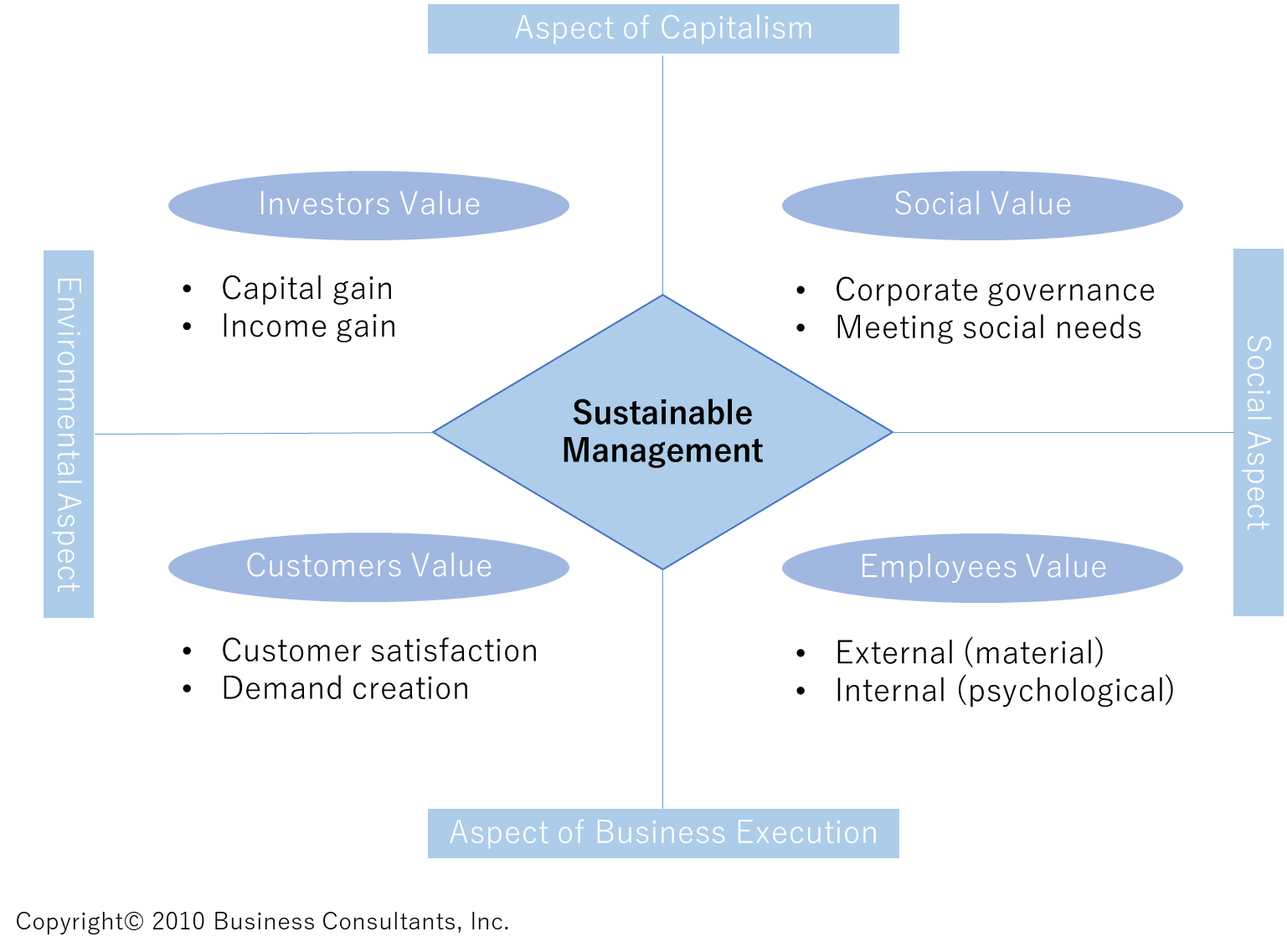Why Aren't Businesses More Sustainable?
The evidence shows that companies who invest in sustainability are not financially worse off than those that do not. In addition, their employees, customers, and investors are all happier and more invested. Even the most basic behaviors, such as philanthropy, can pay off financially.
However, an examination of how businesses engage in the practice of sustainability is less hopeful. 90% of executives believe sustainability is necessary, but just 60% of companies have a sustainability strategy. Organizations that claim to be sustainable many times lag behind when it comes to implementation. Why isn't every company on board with sustainability?
Here are the top six reasons:
1. Difficulties in balancing the needs of stakeholders

For a business to continue operating as a business entity, it is necessary to balance and maintain values for the four main stakeholders while pursuing sustainable development. The needs of the stakeholders; investors, customers, employees, and society, environment, and governance, can contradict each other without a clear corporate sustainability vision. For example, investors may look for short-term results while society and employees focus on longer-term goals. Those trade-offs often become obstacles for the business to pursue sustainable management.
2. Struggles in defining what does sustainability mean for the business
“What would your business look like when it is no longer engaged with unsustainable activities?” This is not an easy question to answer, as we are not talking about only one aspect, like reducing carbon dioxide emissions or the use of plastics. Understanding the whole scope of sustainability; environmental, social, and economic pillars seems difficult without the right understanding of what sustainability is. Even when a company is doing a good practice, like planting trees, which has a positive impact on sustainability, it does not mean the business is not destroying the ecological system. Many businesses face difficulties in envisioning a holistic and comprehensive long-term sustainability goal without having the right principles for sustainability.
3. Indicators to quantify sustainability are complicated
It’s critically important to have the “right measurements” for sustainability impacts to analyze the current status and manage its progress toward future success. However, the consequences of efforts toward sustainability can be challenging to quantify without a framework. Sustainability impacts relate to the whole part of the business activities, from inputs (what will be used as resources), processes (what is the operation look like, and what will be left/lost during the process), and to outcomes (what will be delivered as products/services). The effects can be broad and might not be immediately apparent, thus requiring scientific and consistent measurements, which can be utilized over years.
4. How to involve employees and other stakeholders in the efforts toward sustainability
There are many cases where the sustainability project is led by a department in charge, and there is no buy-in from CEOs and corporate boards. Most of the senior management is aware of the importance and increasing pressures toward corporate sustainability. However, their message toward sustainability efforts can remain at a superficial level without an actual involvement in the process. And inadequate communication to the rest of the organization brings no commitment from other employees. Furthermore, sustainability projects are not only the matter of an organization alone. It requires the involvement of the entire supply chain as the supply chain is responsible for the majority of the environmental impact for many businesses.
5. Government policies must be linked to sustainability outcomes.
Governments can use a variety of measures, such as taxes and regulations to encourage businesses to be good stewards of the environment. They are, however, frequently employed ineffectively. Companies and managers often desire to "do the right thing," and the right policies can help them accomplish so. Leading corporations want regulations that encourage all enterprises to enhance their sustainability performance to implement long-term strategies and develop new goods and procedures to help them achieve their goals. The government also needs to seek the best practices for jointly collaborating with businesses and other stakeholders in policy creation. Businesses need to be a part of the process so that the policy that emerges is effective, efficient, and meets the social and economic needs.
6. Companies that aim to be at the forefront of the environmental revolution frequently fail
Becoming a Leading company in any industry, including sustainability, comes with a set of evident benefits. Sustainable companies, for example, can attract new customers and create employee and community stakeholder loyalty. Being on the cutting edge, though, comes with its own set of risks. Sustainability leaders, for example, may overinvest in technologies that never pay off, be overtaken by a second-mover who builds on the leader's ideas to leapfrog into the lead or lose internal stakeholder support when business objectives evolve. Companies' capacity to profit from possible upside while avoiding risks will be critical for them to continue pursuing sustainability goals.
1Ivy Business Journal, Jan/Feb 2011, Pamela Laughland Iand Tima Bansal, The Top 10 Reasons why businesses aren’t more sustainable, Accessed 2 Nov 2021, https://iveybusinessjournal.com/publication/the-top-ten-reasons-why-businesses-arent-more-sustainable/
For more about this topic, download our latest book " Sustainability: The Inevitable Future " for FREE:
